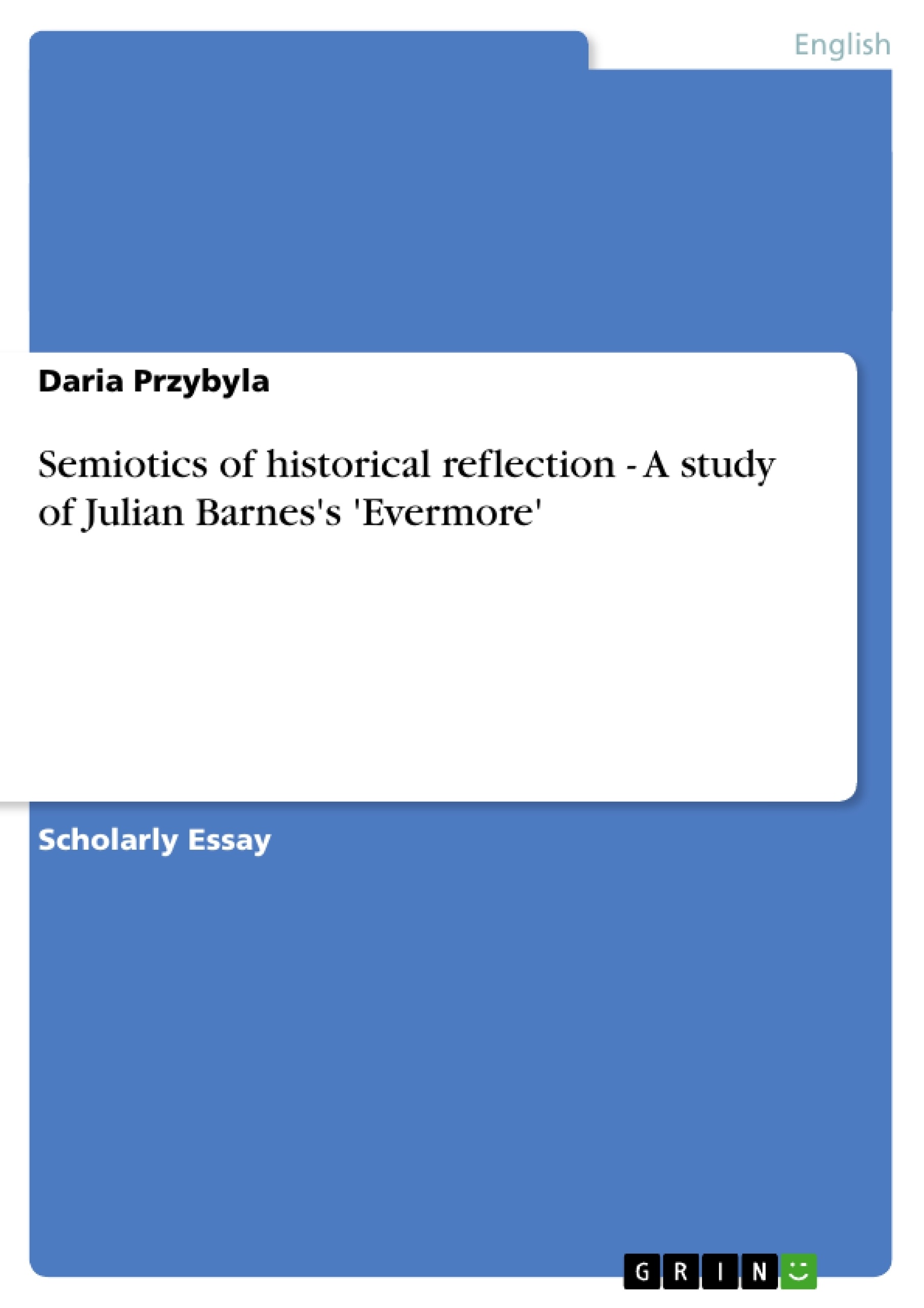In his Cross Channel: Evermore, Julian Barnes raises the issue of historical sites and the ways in which they form our discernment of the past. In the specific text, the process of signification which takes place on the ground of historical discourse is conditioned by three main interpretative factors. First, the postmodern (or poststructuralist for that matter) dialectics of time and place/space decentres the temporal level in favour of replacements that enable wider contexts to be involved in the procedure of establishing meaning. In this sense, spatiality models the situation of the interpreting subject who acquires personal view of temporal events. Second, the post-Hegelian master-slave relation is diluted by the relativism of deconstructionist theory into ‘fraternal others’ which procedure defers signification from being completed. Power relations are to a large degree dissolved. Third, the operations of history-referential language prove that the question of linguistic authority is no longer at stake for language is already embedded in a self-ruled ideology which is not a subject to further redefinition. It is, therefore, debatable to what extent the authority of language can be taken over and instituted by the interpreting subject. Barnes elaborates on these three points trying to deconstruct the metaphysics of a historical representation as well as certain fixed discoursive strategies employed while maintaining such representations.
Inhaltsverzeichnis (Table of Contents)
- INTRODUCTION
- Part I Poststructuralist Notion of Time
- Part II 'Master-slave' vs. ‘Fraternal Others'
- Part III Linguistic Authority
- CONCLUSION
Zielsetzung und Themenschwerpunkte (Objectives and Key Themes)
The text, "Semiotics of Historical Reflection: A Study of Julian Barnes's "EVERMORE", aims to explore the complex relationship between historical sites and the ways in which they shape our understanding of the past. It delves into how the process of signification within historical discourse is influenced by three primary interpretative factors.
- Postmodern/poststructuralist conceptions of time and space
- The 'master-slave' relation in historical interpretation
- The role of linguistic authority in constructing historical narratives
- The deconstruction of metaphysics in historical representation
- The exploration of fixed discursive strategies employed in maintaining historical representations
Zusammenfassung der Kapitel (Chapter Summaries)
- Introduction: This introductory chapter sets the stage for the text, introducing the key concept of historical sites and their influence on our understanding of the past. The author discusses three main interpretative factors – postmodern/poststructuralist conceptions of time and space, the 'master-slave' relation, and linguistic authority – that shape the process of signification within historical discourse. The introduction lays out the framework for the subsequent analysis of Julian Barnes's "EVERMORE", focusing on the deconstruction of the metaphysics of historical representation and the examination of fixed discursive strategies employed in maintaining these representations.
- Part I Poststructuralist Notion of Time: This chapter delves into the intricate relationship between time and place, highlighting the significance of place in shaping historical understanding. The author argues that the perception of the past is limited by temporal borders, leading to a passive reception of bare facts. In contrast, place offers a multitude of contexts and perspectives, allowing for a more nuanced and dynamic understanding of history. The analysis draws upon Barnes's "EVERMORE", specifically examining Dr. Holling's observations of historical sites and their constructed nature. The chapter concludes by emphasizing the need to move beyond temporal constraints and embrace the interpretative freedom provided by space.
Schlüsselwörter (Keywords)
The key terms and concepts explored in this text include: historical sites, signification, postmodernism, poststructuralism, time, space, master-slave relation, fraternal others, linguistic authority, deconstruction, historical representation, discursive strategies, and Julian Barnes's "EVERMORE".
- Quote paper
- Master of Arts Daria Przybyla (Author), 2006, Semiotics of historical reflection - A study of Julian Barnes's 'Evermore', Munich, GRIN Verlag, https://www.grin.com/document/81530



